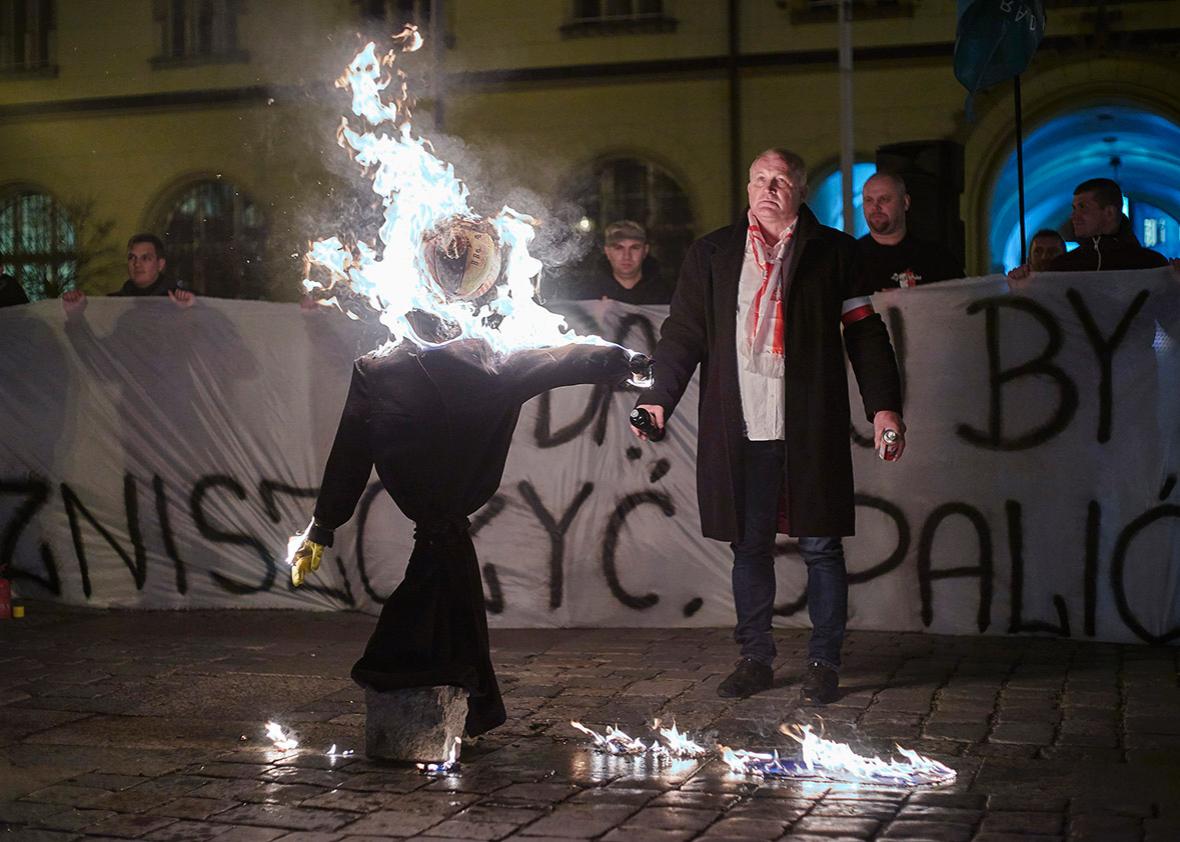A right-wing nationalist rally against the resettlement of migrants and refugees in the Polish city of Wroclaw boiled over into anti-Semitism on Wednesday when protesters burned an effigy of an Orthodox Jew holding a European Union flag and chanted “God, Honor and Fatherland.” Poland’s chief Rabbi Michael Schudrich, describing the incident as “outrageous and concerning,” compared it to demonstrations by the Nazis and Hamas. He also said it showed “how the hatred for migrants comes from the same place as the classic hatred for Jews.” The case is now being investigated by prosecutors to see if demonstrators violated a law that “prohibits publicly insulting people based on religion, ethnicity, race or nationality”—which seems like it shouldn’t take that much investigation.
The incident comes just a few days after the nominee for defense minister from the recently elected, right-wing, anti-refugee Law and Justice Party came under fire for having once asserted that the infamous anti-Semitic forgery, The Protocols of the Elders of Zion, may be true. “Experience shows that there are such groups in Jewish circles,” Antoni Macierewicz said in a 2002 radio interview.
One thing that has generally distinguished the current crop of European ultra-nationalist groups is that they’ve avoided the outright anti-Semitism of their predecessors, focusing instead on the continent’s growing Muslim population. This was recently seen in the very public spat between French National Front leader Marine Le Pen and her father—the party’s founder Jean-Marie Le Pen—over his comments minimizing the Holocaust and a not-so-subtle “oven” joke about a Jewish rival. The younger Le Pen has made an effort to reach out to Jewish voters, particularly in the wake of a wave of anti-Semitic attacks by French Muslims. Firebrand anti-Muslim Dutch politician Geert Wilders has also been a staunch supporter of Israel, which he describes as being on the front lines of the battle against radical Islam.
As prevailing anxieties in mainstream politics have shifted, the rebranding makes sense—it’s telling that it was this gesture involving Jews that triggered an official investigation rather than an entire rally devoted to denigrating Muslims. But anti-Semitism runs deep in the European far right and clearly not everyone has gotten the memo.
